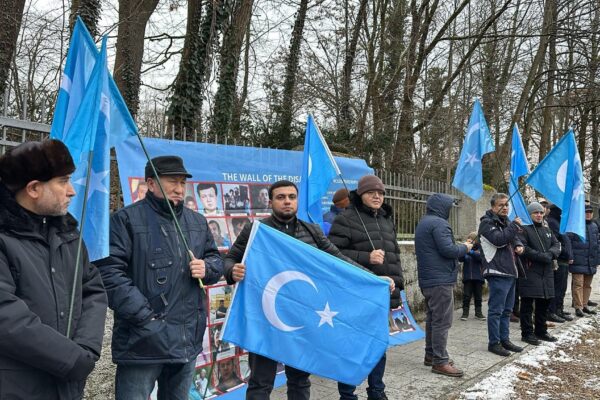Myanmar adopts law for foreign firms to provide armed security
Myanmar’s military government has adopted a law allowing foreign companies to provide armed security services, which analysts suspect will lead to former military personnel from China protecting its extensive economic interests in its southern neighbor. The law raises the prospect of Chinese private military corporations guarding oil and gas pipelines from Myanmar’s Indian Ocean coast to Yunnan province, and ensuring uninterrupted supplies in the event of war in the South China Sea blocking regular shipping routes. The Private Security Service Law, published in state-run media on Tuesday, states that foreign companies seeking a license to set up a security company must be registered under the Myanmar Companies Law. The National Defence and Security Council must approve a company “holding arms and ammunition due to work demand in providing private security services,” states the law, signed by the leader of the junta that seized power in 2021, Senior Gen. Min Aung Hlaing. The legislation stipulates that companies must ensure that staff are “not a member of any armed forces of a foreign country.” Myanmar’s military-drafted 2008 constitution rules out foreign forces operating in the country. The law also requires that “at least 75% of the hired private security servants must be Myanmar citizens,” and companies providing private security services have to abide by existing laws on weapons. China has extensive economic interests in Myanmar, many of them linked to a long-planned China-Myanmar Economic Corridor between China’s Yunnan and Myanmar’s coast. The corridor is part of Beijing’s multi-billion-dollar Belt and Road Initiative of energy and trade-facilitating infrastructure projects. They include a special economic zone and proposed deep-water port, with oil and gas facilities, in Kyaukpyu in Rakhine state, 800-kilometer (500-mile) oil and gas pipelines that extend to Kunming in southwest China, copper jade and rare earth mines and hydro-electric plants. While the embattled military still holds Kyaukpyu, many of the other projects are in areas that have come under the control of anti-junta forces battling to end military rule since the generals overthrew a government led by Aung San Suu Kyi in February 2021. While the civil war has delayed Chinese projects, insurgent forces, some of which maintain contacts with China, have not launched major attacks on pipelines and other facilities, and have even promised to protect them. RELATED STORIES Arakan Army closing in on capital of Myanmar’s Rakhine state Myanmar junta chief seeks China’s help on border stability Trump extends ‘national emergency’ declaration for Myanmar ‘Selling out’ Analysts said the new law sets out the legal framework for a Chinese proposal to set up a China-Myanmar Joint Venture Security Company, as reported in the military’s Myanmar Gazette on Nov. 8. Lawyer Gyi Myint said the law reflected the junta’s determination to get China’s economic projects implemented by relying on Chinese security help. “We have reached a situation where the military has allowed things that are not allowed internationally. This is not in line with the 2008 constitution,” Gyi Myint told Radio Free Asia from an undisclosed location. Political analyst Than Soe Naing said the law would allow former members of China’s People’s Liberation Army to operate legally in Myanmar. “The junta council is selling out to China for nothing even though it is constantly talking about sovereignty,” he told RFA. RFA tried to contact the junta council’s spokesman, Maj. Gen. Zaw Min Tun, to inquire about the criticism of the law but he did not answer the telephone. The military council has not said when the proposed China-Myanmar Joint Venture Security Company would be set up. The Burmese-language Khit Thit Media reported late last year that a deal to establish a Chinese private military corporation in Kyaukpyu was signed in November between a Special Economic Zone management sub-committee and officials from the Chinese CITIC Group Company. Edited by RFA Staff. We are : Investigative Journalism Reportika Investigative Reports Daily Reports Interviews Surveys Reportika


